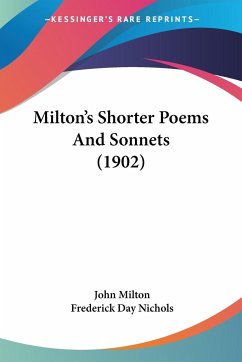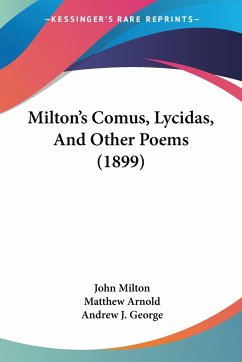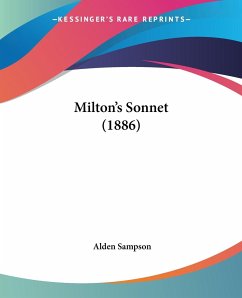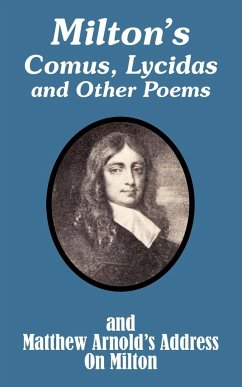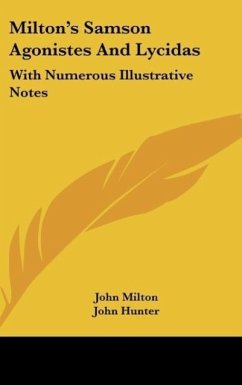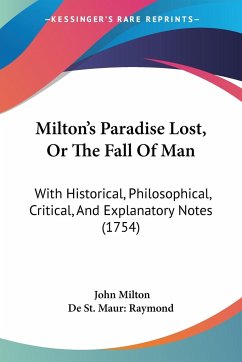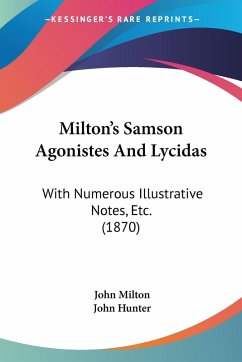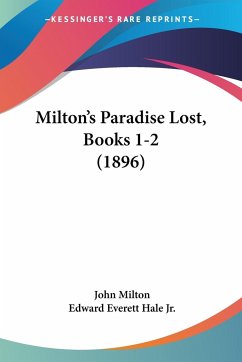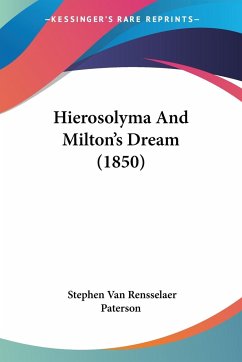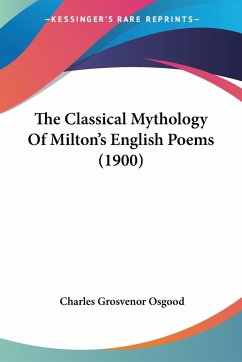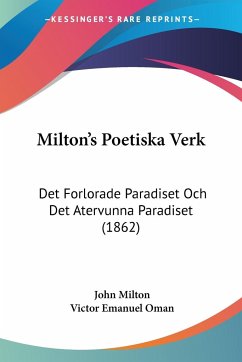
Milton's Poetiska Verk
Det Forlorade Paradiset Och Det Atervunna Paradiset (1862)
Versandkostenfrei!
Versandfertig in 1-2 Wochen
38,99 €
inkl. MwSt.

PAYBACK Punkte
19 °P sammeln!
Milton's Poetiska Verk: Det F¿¿¿¿¿¿rlorenade Paradiset Och Det ¿¿¿¿¿tervunna Paradiset (1862) ¿¿¿¿¿r en samling av tv¿¿¿¿¿¿ av John Miltons mest k¿¿¿¿¿nda verk. F¿¿¿¿¿¿rst ¿¿¿¿¿r Det F¿¿¿¿¿¿rlorenade Paradiset, ett episkt poem som beskriver Adam och Evas fall fr¿¿¿¿¿¿n Eden och deras efterf¿¿¿¿¿¿ljande liv p¿¿¿¿¿¿ jorden. Det andra verket, Det ¿¿¿¿¿tervunna Paradiset, ¿¿¿¿¿r en forts¿¿¿¿¿ttning p¿¿¿¿¿¿ den f¿¿¿¿¿¿rsta ber¿¿¿¿¿ttelsen och beskriver Adams och Evas f¿¿¿¿¿¿rs¿¿¿¿¿¿k att ¿¿¿...
Milton's Poetiska Verk: Det F¿¿¿¿¿¿rlorenade Paradiset Och Det ¿¿¿¿¿tervunna Paradiset (1862) ¿¿¿¿¿r en samling av tv¿¿¿¿¿¿ av John Miltons mest k¿¿¿¿¿nda verk. F¿¿¿¿¿¿rst ¿¿¿¿¿r Det F¿¿¿¿¿¿rlorenade Paradiset, ett episkt poem som beskriver Adam och Evas fall fr¿¿¿¿¿¿n Eden och deras efterf¿¿¿¿¿¿ljande liv p¿¿¿¿¿¿ jorden. Det andra verket, Det ¿¿¿¿¿tervunna Paradiset, ¿¿¿¿¿r en forts¿¿¿¿¿ttning p¿¿¿¿¿¿ den f¿¿¿¿¿¿rsta ber¿¿¿¿¿ttelsen och beskriver Adams och Evas f¿¿¿¿¿¿rs¿¿¿¿¿¿k att ¿¿¿¿¿¿terv¿¿¿¿¿nda till himlen. Boken ¿¿¿¿¿r skriven p¿¿¿¿¿¿ engelska och ¿¿¿¿¿¿versatt till svenska f¿¿¿¿¿¿r att g¿¿¿¿¿¿ra den tillg¿¿¿¿¿nglig f¿¿¿¿¿¿r en bredare publik. Den inneh¿¿¿¿¿¿ller ocks¿¿¿¿¿¿ en introduktion som ger bakgrundsinformation om Milton och hans verk.This scarce antiquarian book is a facsimile reprint of the old original and may contain some imperfections such as library marks and notations. Because we believe this work is culturally important, we have made it available as part of our commitment for protecting, preserving, and promoting the world's literature in affordable, high quality, modern editions, that are true to their original work.



